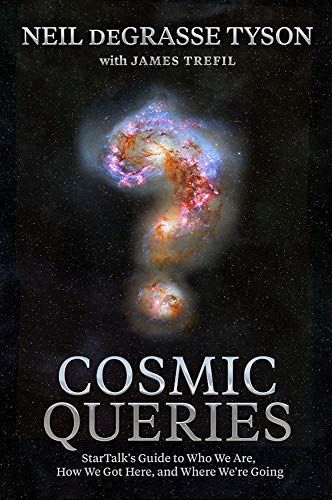
Cosmic Queries Startalk's Guide to Who We Are, How We Got Here, and Where We're Going
For science geeks, space and physics nerds, and all who want to understand their place in the universe, this enlightening new book from Neil deGrasse Tyson offers a unique take on the mysteries and curiosities of the cosmos, building on rich material from his beloved StarTalk podcast. In these illuminating pages, illustrated with dazzling photos and revealing graphics, Tyson and co-author James Trefil, a renowned physicist and science popularizer, take on the big questions that humanity has been posing for millennia--How did life begin? What is our place in the universe? Are we alone?--and provide answers based on the most current data, observations, and theories. Populated with paradigm-shifting discoveries that help explain the building blocks of astrophysics, this relatable and entertaining book will engage and inspire readers of all ages, bring sophisticated concepts within reach, and offer a window into the complexities of the cosmos.
Reviews
matej yangwao@yangwao
Adam Valentino@lug
Milan Aleksić@milanaleksic
Billy Kwok@billykwok